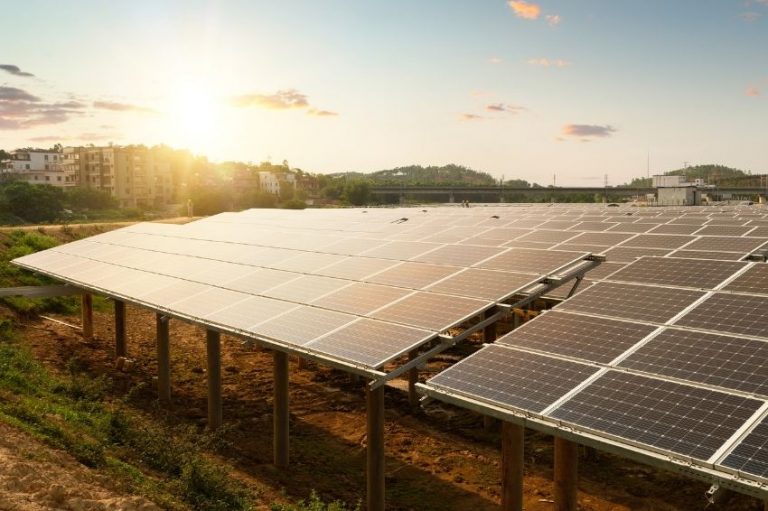In collaboration with Marcelo Tanos*
Through the REN 482 (Normative Resolution No. 482/2012) of ANEEL (National Electric Energy Agency) the general conditions for the access of micro and mini generator units distributed to the electrical energy distribution system were established, as well as the system of compensation of electricity.
From this measure, Brazilian consumers were given the possibility of generating their own electrical energy from renewable sources – solar, wind, hydraulic and qualified cogeneration –, as well as supplying surplus energy to the distribution network of their company. locality – as a free loan – for subsequent consumption through the electricity compensation system established by the resolution.
Since the implementation of this new and relevant generation modality, much has been said about the need to rebalance regulation so that other consumers are not burdened as a result of subsidies granted to consumers who generate their own energy – as in the case of distributed micro and mini generator units.
This is because such units, also called prosumers, do not support certain charges related to the use of the distribution system related to tariff components, charges and technical losses, which are owed by other users of the distribution system - resulting in the establishment, therefore, of a subsidy crossed between consumers, which should be the subject of law and not sectoral resolution.
In this context, ANEEL Public Consultation No. 25/2019 and ANEEL Public Hearing No. 40/2019 were promoted, which aimed to obtain subsidies and additional information for the provisional draft text that will amend REN 482 , which is the result of Public Hearing No. 001/2019 and was the target of severe criticism from society and the National Congress.
As the provisional draft text imposes too much increase in costs on distributed micro and mini generators for the use of the distribution system, the regulation in preparation reveals itself to be contrary to incentives for distributed generation and self-production of energy, as well as disregarding the main benefits arising from such generation modality, such as the postponement of investments in distribution/transmission systems and relief in networks, which contributes to increasing the useful life of conductors and other existing equipment along a distribution/transmission line.
It is important to mention that the National Congress is closely involved with the issue and is very committed to the dissemination of electricity generation technology through distributed generation, and there is even a predisposition for the matter to be dealt with by law and not through an ANEEL resolution, which would, at the same time, resolve any questions relating to the existence of cross-subsidies embodied in incentives aimed at distributed micro and mini generators, relating to the costs of using the local distribution system.
Despite the initial forecast for implementation of the new rule in 2020, to date the agency has not published the new regulation, which is – currently – scheduled for the first quarter of 2021.
The fact is that the pandemic caused by Covid-19 impacted the agenda of ANEEL and other public administration bodies, which turned their efforts to approving urgent and extraordinary measures to contain the crisis recently experienced and still perceived at a global level.
Furthermore, given the evident interest expressed by the National Congress, it can be concluded that ANEEL will probably wait for the Legislative Branch to approve a bill on the topic in question until the end of the first quarter of 2021.
Otherwise, the agency may publish the provisional draft text resulting from Public Hearing No. 001/2019, which is unfavorable to the development of distributed generation in the country and will compromise numerous generation projects in operation and being implemented. In this regard, it should be noted that advanced proposals to revise REN 482 are being processed through bills:
- PL 2215/2020, which aims to amend Law 9,074/1995 to establish the SCEE (Electric Energy Compensation System);
- O PL 5829/2019, which aims to amend Law 9,427/1996 to reduce tariffs for the use of distribution/transmission systems and the charges levied on consumer units in which energy from distributed generation will be compensated and;
- Himself CBEE PL (Brazilian Electric Energy Code), which aims to unify all the vast existing regulations into a single code, providing greater legal certainty and solidity for the electricity sector.
The issuance of regulations relating to the electrical sector must necessarily be based on policies and guidelines previously established by the Federal Government, which is justified given the need to maintain the objectives to be achieved by the regulations, thus avoiding disproportionate commands or unreasonable, which go beyond the purposes originally foreseen by the standard, as well as ensuring full access to electrical energy services.
In view of this, it is expected that the new standard that will regulate the distributed generation modality will consist of enforceable legal commands, easy to understand and apply, providing a peaceful and balanced relationship between sectorial agents, which will be achieved through the publication of stable regulatory provisions. and that result in legal certainty for those involved, in order to avoid unfair treatment that, in turn, triggers administrative and judicial appeals, consequently degrading the relationships that should, in fact, harmonize.
*Lawyer and Founding Partner of LTSC Sociedade de Advogados, with specialization in Regulatory Law and Energy Law from CEDIN (Center for International Law) and IAED (Institute of Higher Studies in Law). Founding member of ABDEM (Brazilian Association of Energy and Environmental Law) and member of the Natural Gas Committee. Vice-President of the OAB/MG Distributed Generation Law Commission.

















3 Responses
In Brazil there is a culture of swimming backwards, everything regresses instead of progressing, but this is called profit for the big ones, if you think about the benefit for the population to the detriment of the few large businesspeople interested in the people, they will always lose, because no politician works for the people, but rather for himself and his interests and affiliates, because congress, instead of working to create laws that benefit the population, just makes CPI of this, CPI of that and not Laws that are there to create and discuss , they don't do anything useful, I bet that if the Energy Framework were of interest to them the other day it would have already been voted on, but unfortunately the day the people are not forced to vote and know how to vote correctly we will be a new country.
While several countries encourage their citizens to produce their own energy, Brazil goes against the grain, making it difficult and harming those who generate energy, employment, income and also relieve the national electrical system and contribute to improving the planet's climate and air. We should encourage this segment even more.
Correct, in addition to preserving water deposits for consumption, irrigation, etc.